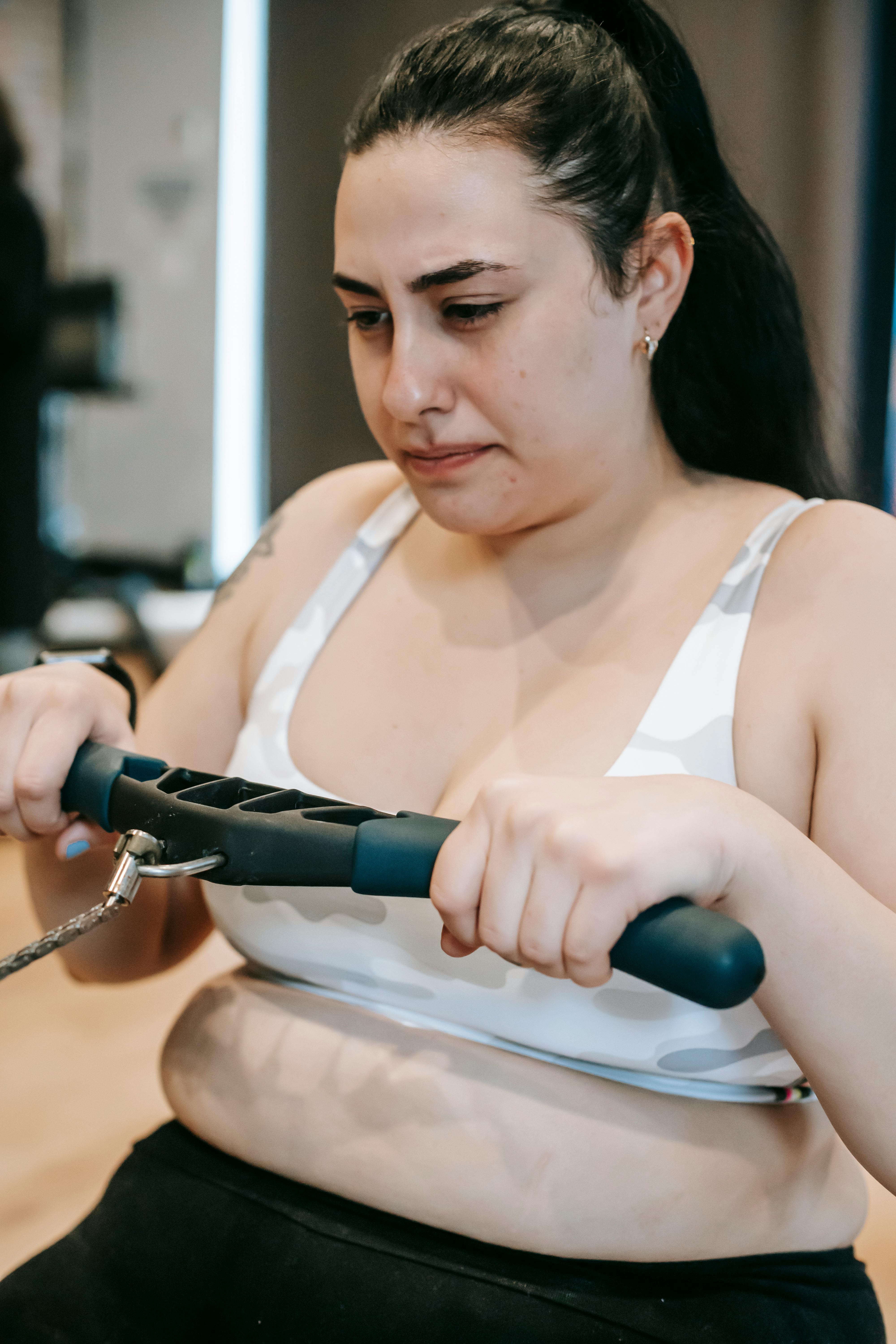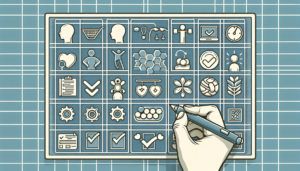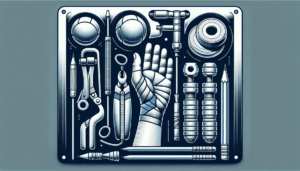If you’re an adult struggling with mental illness, you’re not alone. The good news is that there are occupational therapy activities designed specifically to enhance your mental well-being. From engaging in art therapy to participating in mindfulness exercises, these activities can provide much-needed relief and support in your journey towards improved mental health. Find out how occupational therapy can help you regain control of your life and enhance your mental well-being.

Physical Activities
Sports and recreational activities
Engaging in sports and recreational activities is not only beneficial for physical health but also for mental well-being. Participating in team sports or individual activities like swimming, hiking, or cycling can help you stay active, release stress, and improve your overall mood. Physical activity increases the production of endorphins, which are known as “feel-good” hormones. It can also provide a sense of accomplishment and increase self-esteem.
Yoga and meditation
Yoga and meditation are ancient practices that have gained popularity in recent years for their positive effects on mental health. Practicing yoga involves a combination of physical poses, breathing exercises, and meditation, which can help reduce anxiety, improve focus, and promote relaxation. By cultivating mindfulness and managing stress, yoga and meditation can be valuable tools in enhancing mental well-being.
Dance therapy
Dance therapy, also known as movement therapy, combines physical movement with psychological support and expression. It provides an outlet for creativity, emotional release, and self-expression. Engaging in dance therapy can help improve body awareness, reduce anxiety, and enhance self-esteem. It allows individuals to connect with their emotions and release tension through movement, leading to an overall improvement in mental well-being.
Gardening and horticulture
Gardening and horticulture activities offer a unique way to connect with nature and promote mental well-being. These activities involve caring for plants, planting seeds, and nurturing gardens. Gardening can provide a sense of purpose, boost self-esteem, and improve mood. Furthermore, being exposed to nature has been shown to have a calming effect, reducing stress, and increasing feelings of well-being.
Cognitive Activities
Brain puzzles and games
Engaging in brain puzzles and games can help stimulate cognitive function and improve mental well-being. Puzzles such as crosswords, sudoku, and word searches challenge your brain and enhance problem-solving skills. Playing memory games like matching cards or engaging in strategy-based board games can improve memory, concentration, and cognitive abilities.
Memory exercises
Memory exercises are specifically designed to enhance memory and improve mental function. These exercises can include tasks like memorizing shopping lists, recalling important dates, or practicing mnemonic techniques. By exercising your memory regularly, you can maintain cognitive skills and prevent memory decline.
Mental stimulation activities
Engaging in mentally stimulating activities is crucial for maintaining cognitive health. Activities such as reading, solving riddles, or engaging in intellectual discussions can keep your mind active and sharp. Mental stimulation activities challenge your brain, promote neuroplasticity, and improve mental agility.
Learning a new skill or language
Learning a new skill or language is not only intellectually stimulating but can also improve mental well-being. Acquiring new knowledge or mastering a new skill can boost self-confidence, provide a sense of accomplishment, and increase motivation. Learning a new language also enhances cognitive abilities and can improve memory and attention span.
Sensory Activities
Sensory integration therapy
Sensory integration therapy focuses on stimulating the senses to promote a sense of calm and well-being. This therapy involves engaging in activities that address sensory processing difficulties, such as touch, smell, sight, sound, and taste. By providing sensory input through activities like swinging, deep pressure massages, or sensory bins with different textures, individuals can feel more grounded and regulated.
Sensory-based art activities
Engaging in sensory-based art activities can be therapeutic for enhancing mental well-being. These activities involve using various art materials and textures to create artwork and explore sensory experiences. By working with different mediums, textures, and colors, individuals can express themselves creatively and engage their senses, leading to a sense of relaxation and self-expression.
Aromatherapy and essential oils
Aromatherapy is a holistic practice that uses essential oils extracted from plants for their therapeutic properties. Inhaling the scents of essential oils or applying them topically can promote relaxation, reduce stress, and uplift mood. Different scents have varying effects, such as lavender for calming effects or citrus scents for energizing and uplifting moods.
Sound therapy
Sound therapy involves using specific sounds and frequencies to promote relaxation and reduce stress. Activities such as listening to calming music, nature sounds, or engaging in meditation with the use of singing bowls can help induce a state of deep relaxation. Sound therapy can also improve focus, increase self-awareness, and alleviate anxiety and depression.
Social Activities
Group therapy sessions
Participating in group therapy sessions allows individuals to connect with others who are experiencing similar challenges. Group therapy provides a safe and supportive environment for individuals to share their thoughts, emotions, and experiences. It enables individuals to gain insights, build meaningful relationships, and develop coping strategies while enhancing social interaction and a sense of belonging.
Community volunteering
Engaging in community volunteering not only benefits others but also promotes mental well-being. Volunteering allows you to contribute to a cause you believe in and create a positive impact. By helping others and being part of a community, individuals experience a sense of fulfillment, purpose, and social connection, leading to improved mental well-being.
Joining clubs or support groups
Joining clubs or support groups centered around shared interests or specific challenges provides an opportunity to connect with like-minded individuals. Whether it’s joining a book club, a hobby group, or a support group for individuals facing similar mental health struggles, these activities promote social interaction, support, and a sense of belonging.
Participating in social events
Participating in social events, such as parties, outings, or gatherings, fosters social connections and helps combat feelings of loneliness or isolation. By engaging in social activities, individuals can experience a sense of joy, laughter, and a sense of belonging. Sharing experiences and building relationships with others contributes to enhanced mental well-being.
Creative Activities
Art and craft therapy
Art and craft therapy involve using various art materials and techniques to express emotions, explore creativity, and promote self-discovery. Engaging in art and craft activities allows individuals to process and communicate their thoughts and feelings visually. It promotes relaxation, self-expression, and personal growth while enhancing mental well-being.
Writing and journaling
Writing and journaling provide an outlet for self-expression and reflection. It allows individuals to explore their thoughts, emotions, and experiences in a safe and private space. Writing can be done through journaling, storytelling, poems, or creative writing. It promotes self-reflection, emotional release, and increased self-awareness, leading to improved mental well-being.
Music therapy
Music therapy involves engaging with music to address emotional, cognitive, and social needs. By listening to music, playing instruments, or singing, individuals can express themselves, regulate emotions, and reduce stress. Music therapy can enhance mood, increase self-esteem, and provide a sense of connection and belonging.
Photography and visual arts
Engaging in photography and visual arts can be a powerful means of self-expression and personal reflection. By capturing images or creating visual art, individuals can explore their perspective and creativity. These activities promote mindfulness, concentration, and self-awareness while providing a sense of accomplishment and enhanced mental well-being.
Mindfulness Activities
Breathing exercises
Breathing exercises are simple yet effective techniques to promote relaxation, reduce stress, and enhance mental well-being. Practices such as deep breathing, diaphragmatic breathing, or alternate nostril breathing help calm the nervous system and increase oxygen flow to the brain. By focusing on the breath, individuals can cultivate mindfulness and achieve a state of mental clarity.
Guided imagery
Guided imagery involves visualizing positive and calming images to promote relaxation and reduce stress. By following a guided script or using recorded audio, individuals can imagine themselves in peaceful and soothing environments. Guided imagery encourages mindfulness, relaxation, and helps individuals manage overwhelming emotions.
Mindful eating
Mindful eating involves paying close attention to the experience of eating and savoring each bite. By focusing on the sensory aspects of eating, such as taste, texture, and smell, individuals can cultivate awareness and enhance the enjoyment of food. Mindful eating promotes a healthy relationship with food, reduces emotional eating, and encourages present-moment awareness.
Body scanning
body scanning is a mindfulness technique that involves bringing attention to different parts of the body, acknowledging sensations, and promoting relaxation. By systematically scanning the body from head to toe, individuals can notice areas of tension, release stress, and promote physical and mental relaxation. Body scanning enhances body awareness and helps individuals connect with their physical sensations.
Occupational Role Activities
Workplace rehabilitation
Workplace rehabilitation involves engaging in simulated or real-life work-related tasks to improve job skills and build confidence. This activity is particularly beneficial for individuals who are seeking to return to work after experiencing mental health challenges. Engaging in workplace rehabilitation activities allows individuals to regain skills, adapt to workplace demands, and enhance their overall functioning and job performance.
Tasks related to daily living
Tasks related to daily living encompass activities that individuals perform in their daily lives, such as cooking, cleaning, or personal care. Engaging in these activities not only promotes independence but also provides a sense of accomplishment and purpose. By participating in tasks related to daily living, individuals can enhance their ability to manage daily activities, promote self-care, and improve overall well-being.
Money management
Money management activities involve learning and practicing skills related to personal finances, budgeting, and financial planning. By developing effective money management skills, individuals can reduce financial stress and gain a sense of control over their financial situation. Money management activities can enhance decision-making abilities and promote financial well-being.
Time management
Time management activities focus on developing skills to effectively plan, organize, and prioritize daily tasks and responsibilities. By improving time management skills, individuals can reduce feelings of overwhelm and stress. Engaging in time management activities can enhance productivity, promote a sense of control, and improve overall time management abilities.
Self-Care Activities
Taking relaxing baths or showers
Taking relaxing baths or showers can be a soothing self-care activity that promotes relaxation and reduces stress. Adding aromatherapy oils or bath salts can enhance the experience and provide additional therapeutic benefits. This activity allows individuals to dedicate time to themselves, unwind, and focus on self-care.
Personal grooming and hygiene
Engaging in personal grooming and hygiene activities contributes to overall well-being and self-esteem. Activities such as grooming, hairstyling, skincare, and maintaining personal hygiene routines promote self-care and a sense of self-worth. By prioritizing personal grooming and hygiene, individuals can enhance their self-image and overall mental well-being.
Engaging in hobbies and interests
Engaging in hobbies and interests is an excellent way to promote mental well-being and self-expression. Whether it’s painting, playing a musical instrument, cooking, or gardening, participating in activities that bring joy and fulfillment enriches life experiences. Engaging in hobbies and interests fosters creativity, promotes relaxation, and provides a sense of accomplishment and fulfillment.
Practicing self-compassion
Practicing self-compassion involves treating oneself with kindness, empathy, and understanding. It is essential for mental well-being as it helps individuals cope with difficult emotions, reduce self-criticism, and cultivate self-acceptance. Engaging in self-compassion activities, such as self-affirmations, self-care routines, or seeking support, nurtures a positive relationship with oneself and enhances overall mental well-being.
Group Activities
Cooking classes and group meals
Participating in cooking classes or group meals provides an opportunity to socialize, learn new culinary skills, and promote mental well-being. Cooking together fosters connections, encourages teamwork, and allows individuals to share a meaningful experience centered around food. Engaging in cooking classes or group meals promotes social interaction, provides a sense of accomplishment, and enhances overall well-being.
Team building activities
Engaging in team building activities can enhance social bonds, communication skills, and cooperation. These activities usually involve group problem-solving challenges, physical activities, or trust-building exercises. Team building exercises are designed to improve collaboration, foster a sense of belonging, and strengthen interpersonal relationships, leading to enhanced mental well-being.
Group outings or field trips
Participating in group outings or field trips allows individuals to explore new environments, create shared memories, and build connections. Whether it’s visiting a museum, going on a hiking trip, or attending cultural events, group outings foster social interaction, promote a sense of adventure, and provide an opportunity for personal growth and enjoyment.
Group therapy exercises
Engaging in group therapy exercises encourages individuals to actively participate, share their thoughts, and practice coping strategies together. These exercises can include role-playing, problem-solving activities, or group discussions. By engaging in group therapy exercises, individuals benefit from peer support, gain insights from others, and develop effective strategies for managing mental health challenges.
Technology-based Activities
Digital therapy platforms and apps
Digital therapy platforms and apps provide convenient access to various mental health resources, including therapy sessions, meditation exercises, and stress management tools. These platforms offer a range of activities tailored to individual needs, such as cognitive-behavioral therapy exercises, mindfulness practices, or relaxation techniques. Digital therapy platforms and apps can be valuable resources for enhancing mental well-being.
Virtual reality therapy
Virtual reality therapy involves using immersive virtual environments for therapeutic purposes. This technology allows individuals to engage in simulated activities or environments that can help reduce anxiety, phobias, or post-traumatic stress disorder. Virtual reality therapy provides a safe and controlled environment for exposure therapy and promotes emotional regulation and relaxation.
Online support groups
Online support groups offer a virtual space for individuals to connect and seek support from others with similar experiences. These groups provide a sense of community, validation, and empathy. Engaging in online support groups allows individuals to share their stories, receive encouragement, and gain emotional support, contributing to improved mental well-being.
Gaming therapy
Gaming therapy involves using specially designed video games to address various mental health challenges and promote mental well-being. These games can focus on stress reduction, cognitive stimulation, or emotional regulation. Gaming therapy provides a fun and engaging platform to develop coping skills, enhance cognitive abilities, and improve overall mental well-being.
In conclusion, occupational therapy offers a wide range of activities to enhance mental well-being for adults. Whether it’s engaging in physical activities, participating in cognitive exercises, exploring sensory experiences, joining social groups, expressing creativity, practicing mindfulness, engaging in occupational role activities, prioritizing self-care, participating in group activities, or using technology-based interventions, there are numerous options available. By incorporating these activities into daily routines, individuals can promote mental well-being, reduce stress, improve self-esteem, and enhance overall quality of life.



